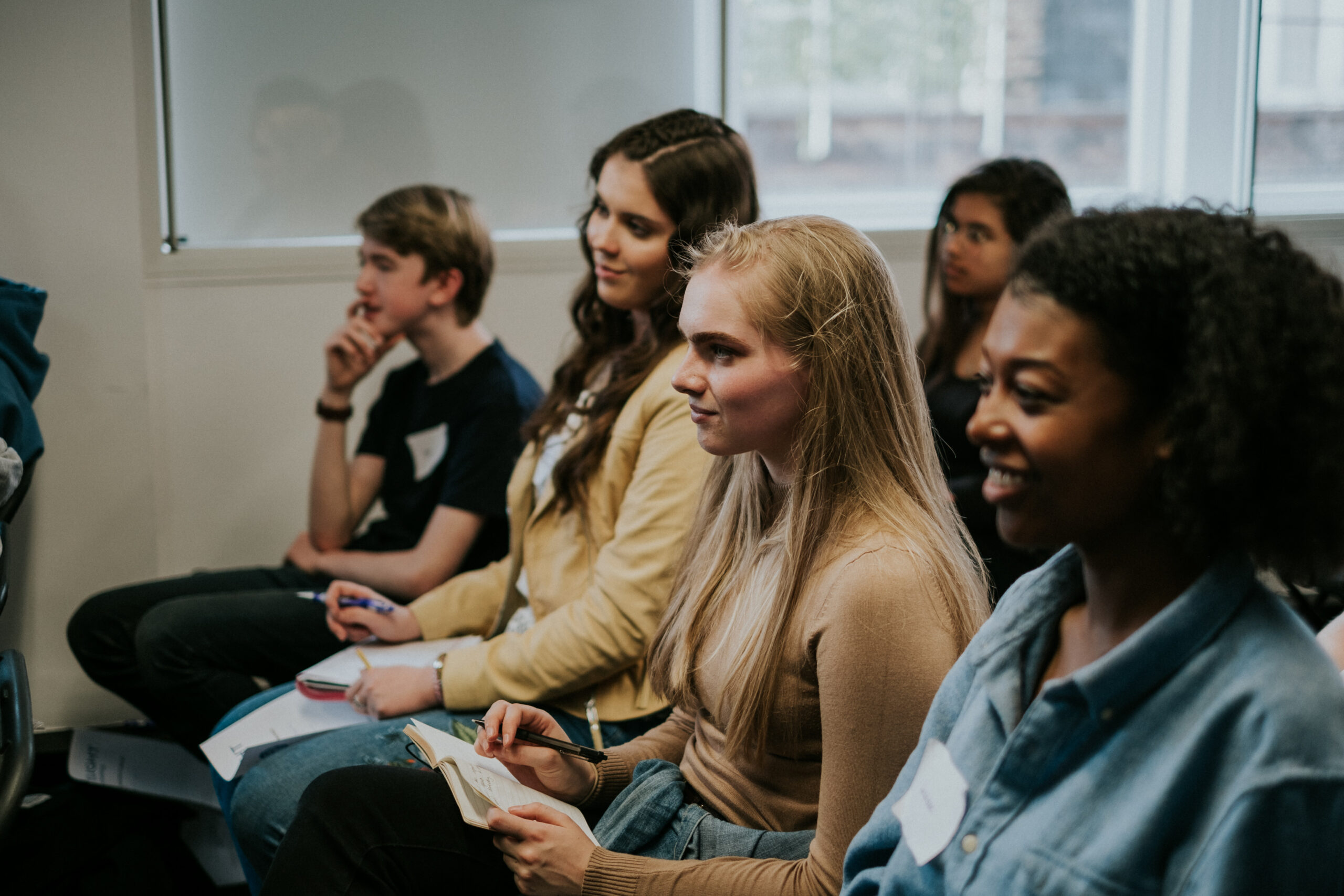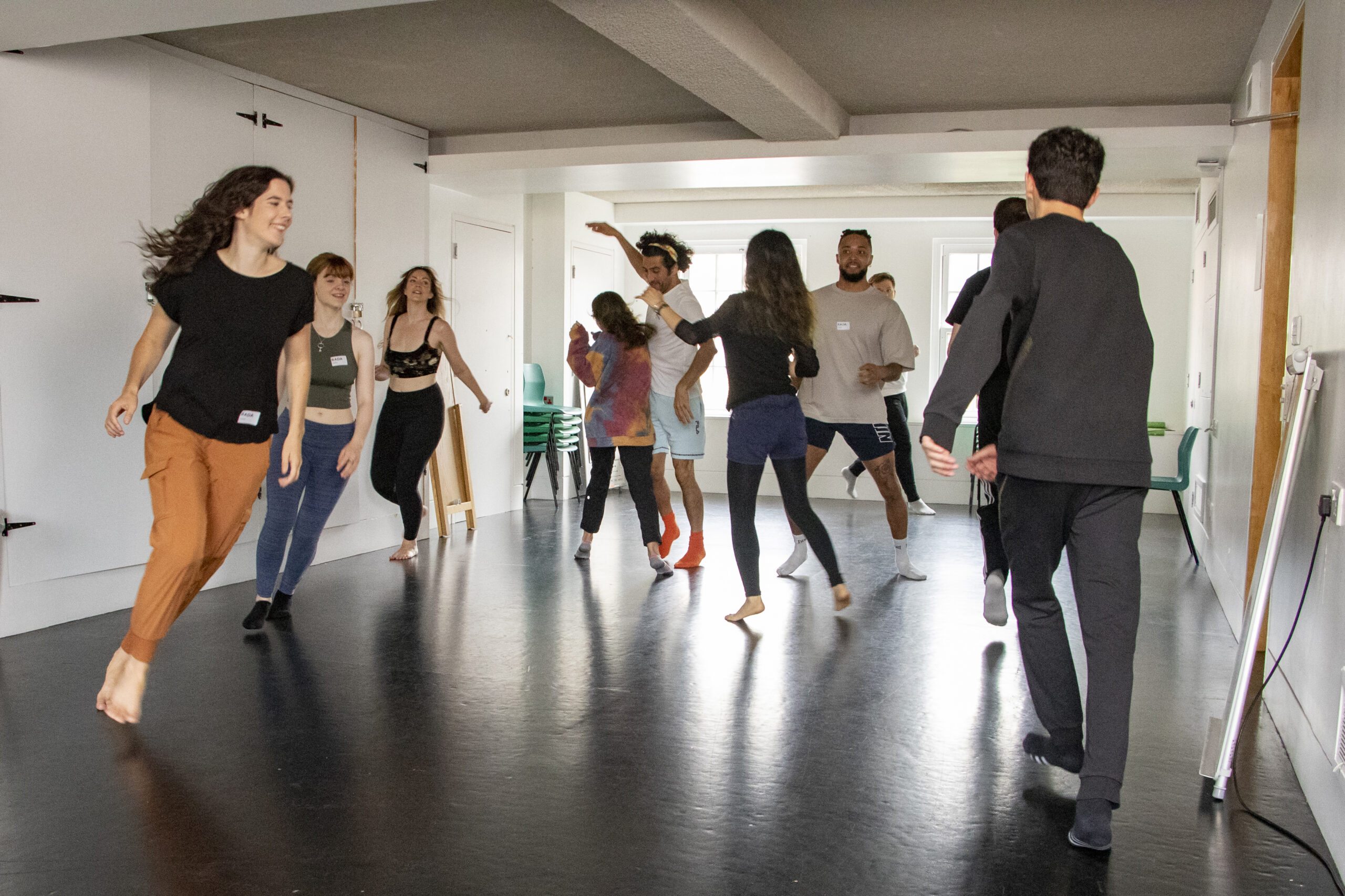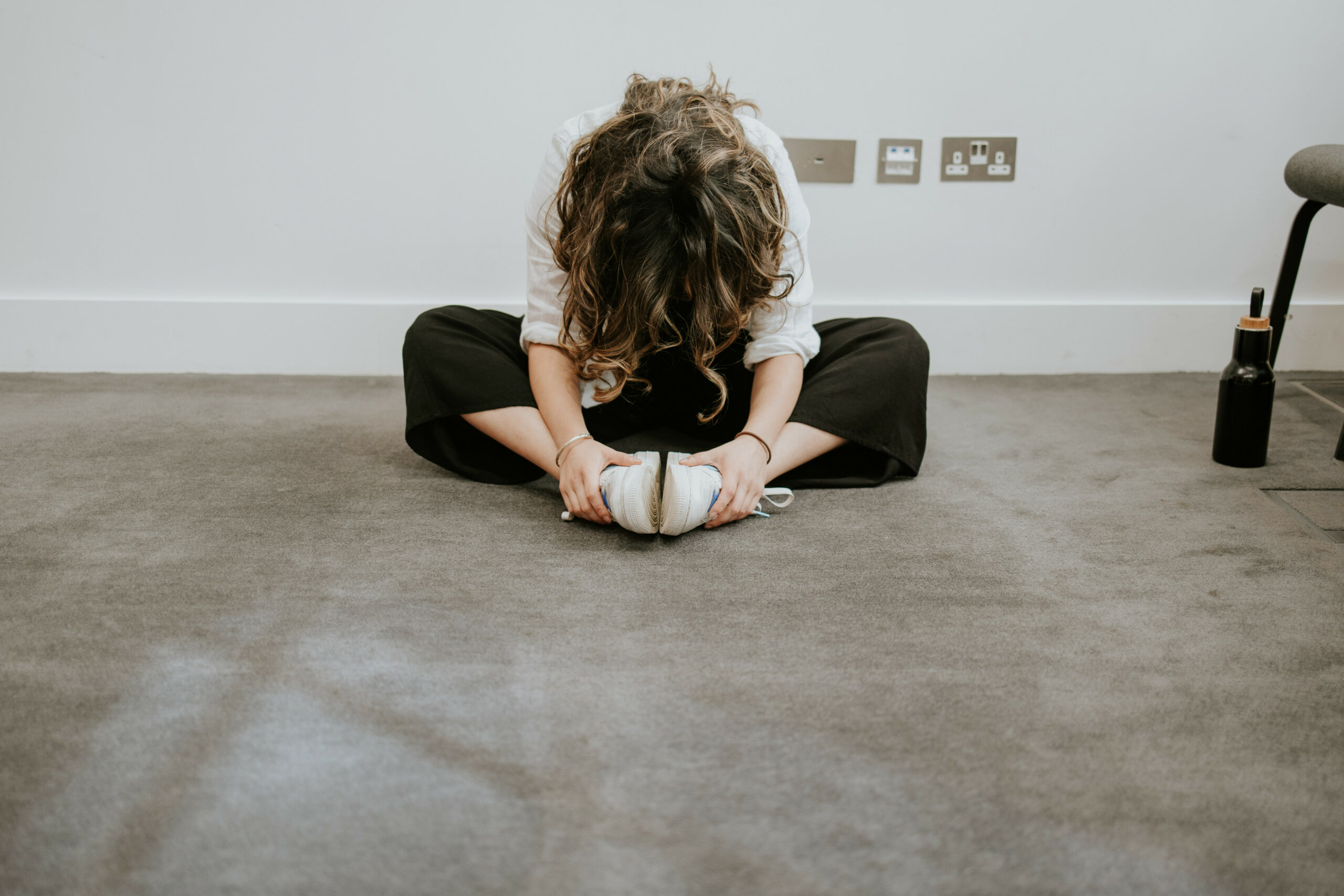EastEnders star Seraphina Beh on getting past rejection with ‘unashamed confidence’ and different ways to hone your craft!
 Seraphina Beh talks to Spotlight about all things acting as a young performer – including her work on EastEnders, how she found her passion for acting, and her advice for other aspiring young actors.
Seraphina Beh talks to Spotlight about all things acting as a young performer – including her work on EastEnders, how she found her passion for acting, and her advice for other aspiring young actors.
If I’d decided I wanted to be a lawyer, that that was going to be my bread and butter, I’d work hard at that. Why would I approach acting any different? My thing has always been about longevity. I don’t care as much about flash in the pan moments. With basketball, it was all about discipline, focus, team work – I apply the same thing. If this is going to be my bread and butter, I have to make it work.
Thanks for talking to us Seraphina! First thing’s first: what made you want to be an actor?
I think I always naturally had an interest in acting – [an interest] in TV, film, entertainment. I think it got serious when, in Year 10, I had a school trip to the Young Vic to watch The Brothers Size. I was blown away – it was the first time I thought I could see myself as a woman of colour doing this, and it can be a different narrative. We can do different things.
I was getting really annoyed at the time doing all these essays about people of colour in the industry and it was always ‘kid in the hood’ stuff, and I didn’t really see myself [like that]. I mean I’m a south London girl, I’m from Croydon, but not all of us are like that. Not all of us wear hoodies and brandish knives – there are other things we can do. So, I think watching the Brothers Size literally changed my life. There is a really intimate scene with Anthony Welsh – he’s wicked – and my friend was literally digging her fingers into me because it was so intense, and I wasn’t [reacting], I was just so focused on the stage. And that’s when I knew: I’m just going to try it out, see what happens.
I didn’t know where I was going after [Year 10]. I started doing my A-Levels… but I didn’t have anyone associated with the industry, I didn’t know anyone in it. So, I started looking for random open auditions, went to quite a few and was treated horribly.
I was just really confused about what I was going to do with my future. A lot of my friends knew they wanted to be a doctor or a lawyer, and I was really not sure what I was going to do.
Another turning point for me: the 33% Festival. At the time 33% was the percentage of people under 25 working in the industry, so it was run by people under 25 – directors, producers, marketing, everyone in the festival was under 25. That was my introduction to the world of theatre and acting. I worked with some really great people. The first director, Roy Alexander Weise – he is doing the most right now! He’s even directing one of the REP National Youth Theatre shows right now, Jekyll & Hyde. I learned so much from my process with him, so many people are doing such great things right now – it’s just crazy to think we were all like in this little thing being silly together.
You mention open auditions – that experience must have been tough at first. What made you stick through it?
I think part of it is down to the fact a lot of my friends were very passionate and driven, and I was very lucky – we all did basketball together and stuff, but I knew outside our sports they were passionate about being lawyers or engineers. They weren’t put off by the lack of representation in their field, they were still just going for it. I was always quite lucky to have those mind-sets around me. I tried my best to just go for it, not think of the negatives. I would literally just go to these things not knowing what was going to happen, just do my best and just see. I was pretty passionate. If I’d decided I wanted to be a lawyer, that that was going to be my bread and butter, I’d work hard at that. Why would I approach acting any different? My thing has always been about longevity. I don’t care as much about flash in the pan moments. With basketball, it was all about discipline, focus, team work – I apply the same thing. If this is going to be my bread and butter, I have to make it work.
So, what made you want to train at the National Youth Theatre?
NYT came about at a point here I was doing really well at Oval House – I became an associate actor with them, I was spreading my wings as an actor. I got an agent after my first show, I had been introduced to the industry. Proper auditions, coming to Spotlight. But it was the first time being faced with proper rejection too, I think, even though my mind-set is so go, go, win, win!
I’d get so excited, hoping to hear something positive – but then when you’re constantly getting almost to the end, always hearing, “She’s great, but we’re going to go with someone else.” I think I was consistently getting to the final 2 or 3. Then I was in Casualty and my agent was saying, “You’re a star!” But I was thinking, “I don’t think so…!” I got a role and then it was taken away from me, and I was in serious denial – I kept saying, “Yeah I’m fine!” But I wasn’t.
I thought maybe I should give up this acting thing. A friend of mine from Oval House just asked me how long I’d been acting. I said, “I’ve been acting for 2 years, I know what I’m doing!” Then he asked, “How long have you been an actor getting paid?” “Six months.” “Six months? Go somewhere and train!” He told me about this course called Playing Up, with Jim Pope. I kinda just took the plunge, went to an audition at the last minute. It seemed like a great place. It’s about giving people from different backgrounds an opportunity.
I think they were aware I had a bit of acting experience but were more than happy to have me, and I was very happy to be in a place where acting wasn’t a scary monster. Just being in a room with people for 10 months being creative, silly, real, raw, passionate. At the end of it, not everyone wanted to be an actor. But it was great because they genuinely inspired me – all fabulous performers – and they were content with the confidence from that course to go get another job.
It’s an amazing programme – having spoken to a few of this year’s students recently, the drive they each have is pretty incredible…
It’s like the first time someone says, “You can do this.” Playing Up, more so than REP, gave me back my confidence. The confidence I’d lost from rejection, when I wasn’t myself. It tops you up. I really owe a lot to the people who put Playing Up together. Anna Niland, she’s wicked! She is a rock of hope.
After doing Playing Up, they allow you to become an NYT member for free – which is great! I did my intake course with Judy Browne, who recently passed away, which really was quite a big blow, and she taught me so much in the two weeks that I had with her. The main thing that stuck out with Judy: she gave us these little cards that said, “Lead by example.” I realised I really can do this. I found my passion again.
I think it is about discipline at the end of the day – if you have that already and you can give yourself the time to try things out, maybe drama school isn’t for you, because it is a lot of money. A lot of time potentially wasted if you aren’t comfortable and don’t want to be there. But if you know you need that discipline, you’re passionate to be an actor, it’s three years you are investing into yourself and you come out singing.
NYT’s REP is known for giving a really solid foundation as an actor. Did you feel like this was a better idea than traditional drama school training?
I think REP is really for someone whose mind-set is really diligent and ready to work for themselves. REP is in no way, shape or form a ‘drama school’, but it is an opportunity to meet people in the industry, to use these techniques with professional actors on stage. If you feel like you can put yourself in the position to say, ‘I like this technique’ or ‘I don’t like this technique’ and really just have a go, then I think REP is for you.
There are definitely things I learned on REP where I thought ‘I hate this so much!’. Actioning in particular. I was just like ‘I hate it, I’m not doing it.’ But the joke was, when I started doing EastEnders, it came in handy! Everything made so much sense.
I think I was lucky because even on EastEnders they had this thing called EastEnders Academy, got people in from industry – it was kinda like REP! The lady who helped write the action book came in and explained it, and I was like, ‘Oh my god, this is the best thing ever!’ I actually ran and bought [her] book [on it].
Just little moments like that, that I was probably flippant about during REP, really did come in and aid me a lot during my career outside REP.
How did EastEnders come about? Did it feel like a turning point?
EastEnders was a bit random, how I got it – I didn’t think I could, because I had my auditions during REP, when we were still doing our shows. I found out that my final recall was the same day as the final performance for Pigeon English. It was literally Pigeon English in the day and the night so I didn’t think I could go [to the audition]. But unbeknownst to me, the exec actually came down and watched my final performance. It all just kind of worked out from there! I was really very excited to do it but also a bit sad because I couldn’t finish REP properly, I had to leave early to film. I had the confidence though from everyone at REP to just go do it, enjoy it. EastEnders was at a point where I just thought I’m going to really buckle down and prove everything that I learned from REP was worthwhile. And it was!
Since then, you’ve done lots of different things – how do you choose what to audition for?
I definitely don’t pick! My friend Nathaniel is always like, “Do you know how many people look up to you?” And I’m just like, “Who?” I’m not sure who he means. In my eyes, I’m still learning and I very much see myself as a professional, but I’m still a baby in all of this. I am still seeking to learn more. I think any actor worth their salt should have that mind-set. I’ve always said that my thing is longevity, so I felt like I am not in a position yet to be choosy.
Any final advice for other young aspiring actors, thinking about whether drama school is for them, or how to navigate their first years in the job?
It is so hard because I knew from the get go that drama school wasn’t really for me – apart from the fact that I couldn’t really afford it. I think it comes down to knowing how you are as a person, how you learn – how you prefer to receive information. If you feel like you’re the type who needs to sit down for a good couple of years, to really understand it and let it flow through your mind [then drama school makes sense].
Don’t go to drama school just because it’s a big name – go because you want to be there, you’re passionate. I think the worry is it’s three years out of the industry, but that’s three years to do stage work – you’ve got that training behind you. I’m still trying to get my lungs to certain places. There’s no shame in that.
I have mates who didn’t go to drama school and are smashing it, I have mates who did go to drama school and they needed that chance to get disciplined. I think it is about discipline at the end of the day – if you have that already and you can give yourself the time to try things out, maybe drama school isn’t for you, because it is a lot of money. A lot of time potentially wasted if you aren’t comfortable and don’t want to be there. But if you know you need that discipline, you’re passionate to be an actor, it’s three years you are investing into yourself and you come out singing. Drama school can work. But always expect the unexpected.
There will be times when you think nobody’s paying attention, but then there are those little moments when you realise there is a point to this, someone is appreciating what you’re doing and literally you just have to expect the unexpected.
Are there any ‘lowlights’ or challenges that you think young aspiring actors should know about? Challenges you felt you overcame?
There was a point where I bagged a role and found out the producer didn’t want me, essentially. I would be going to auditions after that and feel really anxious. There’s a difference between a hungry actor and a starving actor – I was starving! I think I was pinning my whole life on it. I guess from my background, an African background, the pressure of ‘when are you going to get a job’…! You can really rattle yourself. I was legitimately going to walk away from acting and everything it had to offer me and everything I had to offer it.
There was another point towards the end of Playing Up, when my agent was really not happy about me doing Playing up – it is 10 months of the year not working – and put a lot of pressure on me, more or less threatening to drop me from the agency. [At the time] I didn’t know what other agencies there were, where else to go. I had this audition for Hollyoaks, the day before my birthday, the script was 9 pages long and as a great dyslexic…! The others from Playing Up sat with me in a park and helped me learn all of it.
I thought if I got that far there’s no way in hell I haven’t got the job! It was a final two, and they went with someone else. It hit me like a tonne of bricks – I remember I just started crying in my room. Just like what am I doing wrong! The next day I had a performance with Playing Up.
I had a moment – you know, where the world slows a bit – and I just thought, “You know what, at least I’m still doing this.” Because I could have cried about it a lot more and been like ‘this industry hates me!’ But I was doing something great already [with Playing Up] – in the midst of that you can be so dependent on the next job. It can break your heart. But another one comes along, it’s fine. There’s nothing wrong with having those moments of saying ‘I feel really crap today, I can’t deal with the rejection today.’ Just know that the next thing is coming.
There will be times when you think nobody’s paying attention, but then there are those little moments when you realise there is a point to this, someone is appreciating what you’re doing and literally you just have to expect the unexpected.
What would you love to do next?
Something action-based! I’m such a nerd, I’m so into anime and manga. So, anything where I can control elements would be really cool. I’m basically talking about Avatar: The Last Airbender; the cartoon was really good! If they ever do a British version of an anime, I am so there. Anything action-packed would make all my dreams come true. I’ve also been playing a lot of aggressive roles lately so I think I need to show the world that I’m nice! A nice daughter, that would be good!
Thank you to Seraphina for giving Spotlight her time! Part two of this interview will be published very soon, covering how to have a good relationship with your agent, and what makes a good role model. Keep an eye out!
Image credit: Helen Murray












